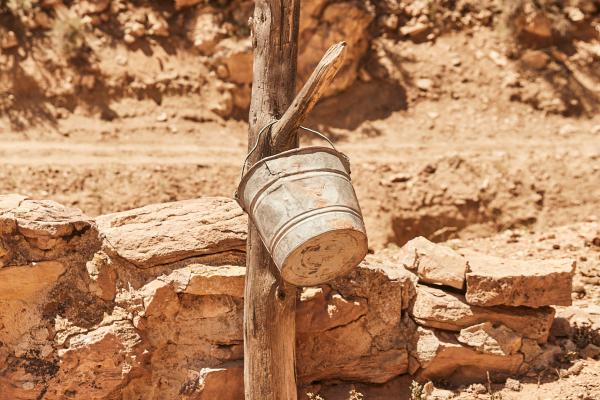Strengthening Navajo Nation’s Water Access Through Electric Power Grid Enhancement

In the heart of the expansive Navajo Nation, where ancient traditions meet modern challenges, a critical issue looms - ensuring reliable access to clean water for the more than 173,000 residents. Against the backdrop of investment hurdles, aging infrastructure, and capacity limitations, a pioneering effort is underway to address the pressing issue of electricity supply.
Navajo Technical University leads the initiative to enhance electric power grid resilience for reservation residents in collaboration with Professor Noah Dormady of John Glenn College of Public Affairs and Abdollah Shafieezadeh, the Lichtenstein Professor of Civil, Environmental, and Geodetic Engineering, both at The Ohio State University, the Colorado School of Mines, the Dineh Chamber of Commerce in Navajo Nation, and the Navajo Tribal Utility Authority.
Electricity outages have long challenged the Navajo Nation's daily life and economic stability. These outages, intensified by unique regional factors, have profound impacts beyond power loss. They cascade into essential lifeline services, notably access to potable drinking water, food supply, and medical services. The consequences ripple into the business sector, disrupting small and mid-sized enterprises and impeding their operations.
Over 14,000 households on the reservation lack access to electricity and confront the grave issue of limited access to running water. Residents often endure grueling journeys, spanning more than 100 miles, to reach riparian areas and livestock wells to obtain water. Tragically, this water is not potable, and during power outages, residents cannot even boil it on their electric stoves, leading to the loss of a fundamental resource - drinking water.
The challenge deepens when considering the remote location of the nearest grocery store, sometimes 100 miles away. During power outages, perishable food items spoil, forcing residents to embark on arduous treks to secure essential provisions - a dilemma uncommon in most other parts of the country.
The goal of the project is to use community input, assess cost and effectiveness of the solutions and enhance the Navajo Nation's energy resilience planning.
Visit John Glenn College of Public Affairs' new story, Enhancing Power Grid Resilience for Navajo Nation to learn more.
